
If you wear personal protective equipment during construction work, OSHA's new final rule requires that it must properly fit. The rule goes into effect January 13, 2025.

If you wear personal protective equipment during construction work, OSHA's new final rule requires that it must properly fit. The rule goes into effect January 13, 2025.
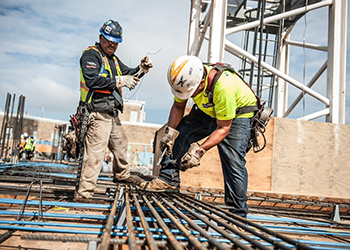
The Advisory Committee on Construction Safety and Health needs you. If you or someone you know is interested in protecting workers in the highly hazardous construction industry, apply by January 2, 2025.
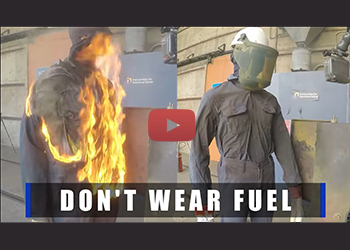
Electrical arch flash explosions can cause serious and even fatal burn injuries. Watch this video and visit our website to learn how to keep workers safe.
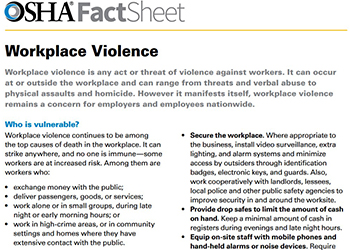
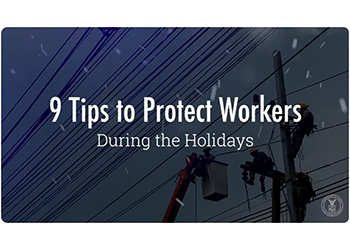
Watch OSHA's video for tips on how to ensure that the people who make this time special for us "in warehousing, delivery and retail industries".
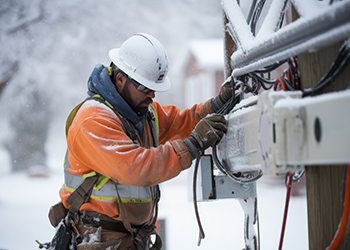
As temperatures drop, make sure workers have proper protection from cold stress and other winter weather hazards

Workplace violence incidents are on the rise. Register for our free November 20 webinar to help prevent it at your workplace.
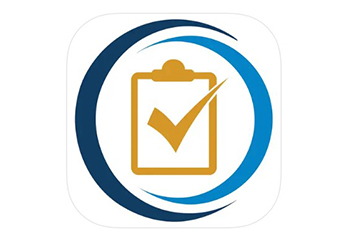

OSHA and the National Institute for Occupational Safety and Health are partnering to limit the risk of hazards that increase in situations when a worker cannot be seen nor heard by another worker.

Order up to four free at-home COVID-19 tests here.
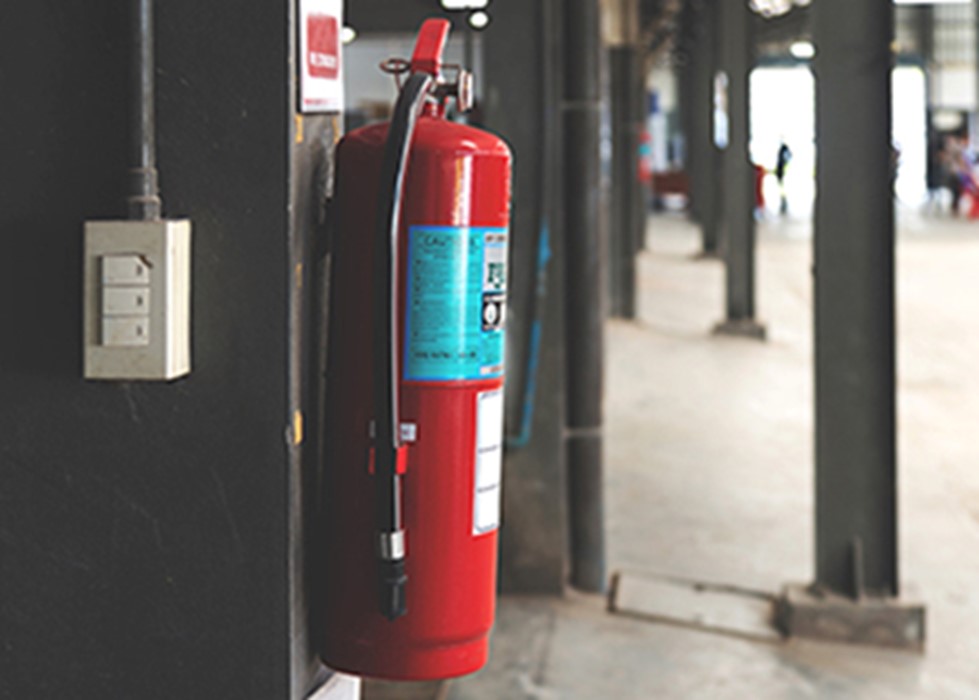
October 6-12 was Fire Prevention Week. Learn about fire hazards in the workplace and what to do in a fire emergency.
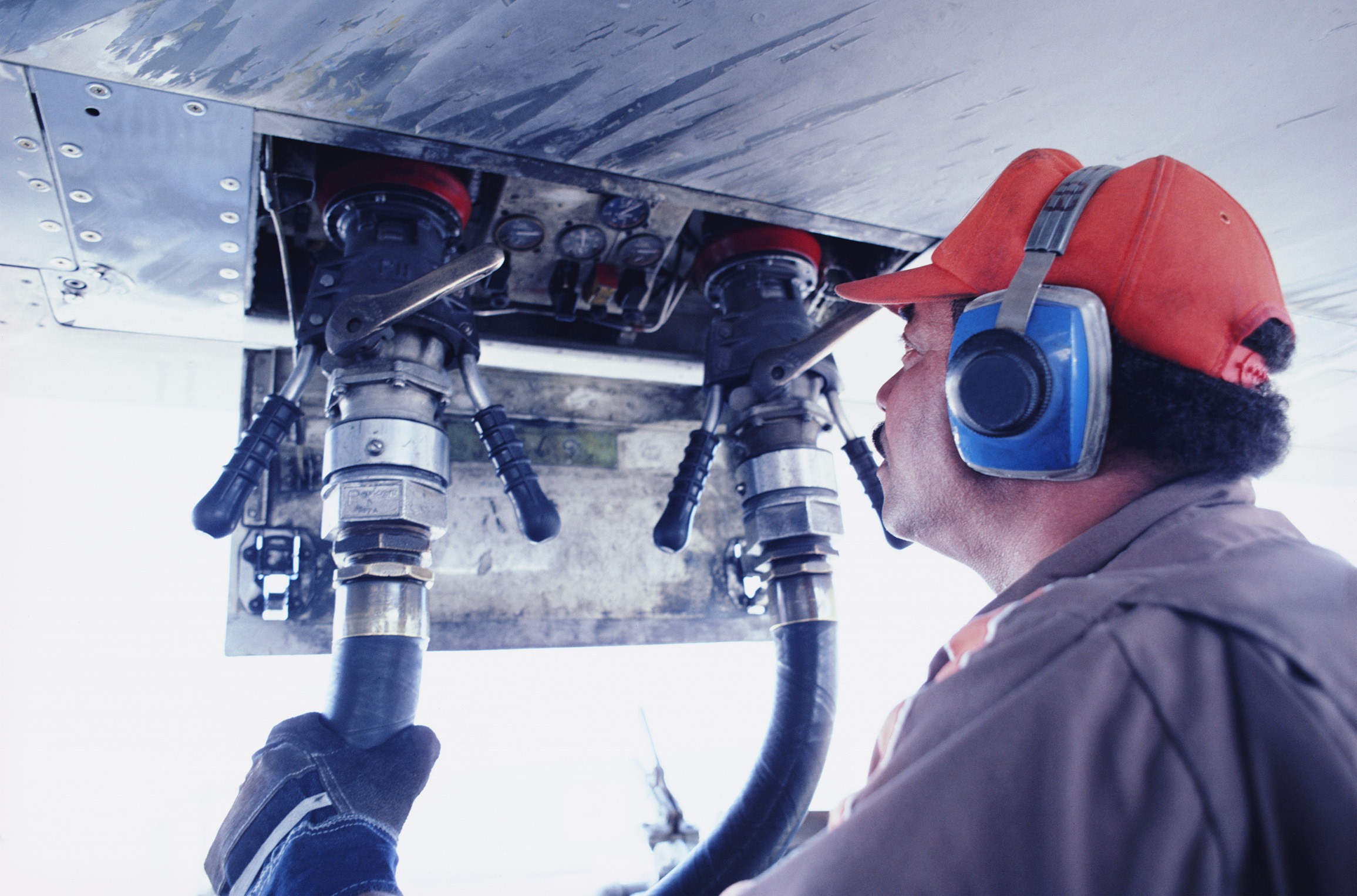
The Center for Disease Control (CDC) estimates that 22 million workers are exposed to potentially damaging noise at work each year. Learn how to prevent hearing damage from prolonged exposure to high levels of occupational noise.
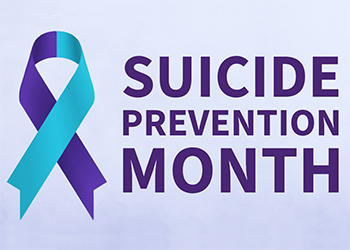
Suicide is a leading cause of death among working age adults in the United States, especially in the construction industry. OSHA has resources on suicide prevention and what steps can be taken to reduce workplace stress and improve mental health and well-being.
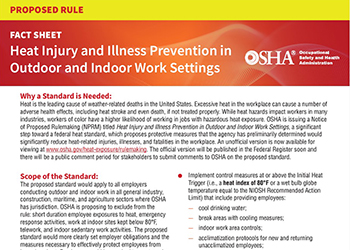
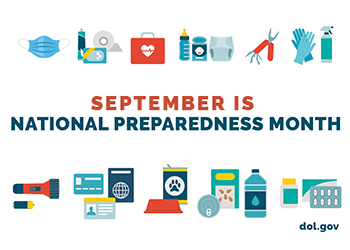
September is National Preparedness Month. Employers are encouraged to prepare and train workers to respond before severe weather, fires, industrial chemical releases or other emergencies occur.
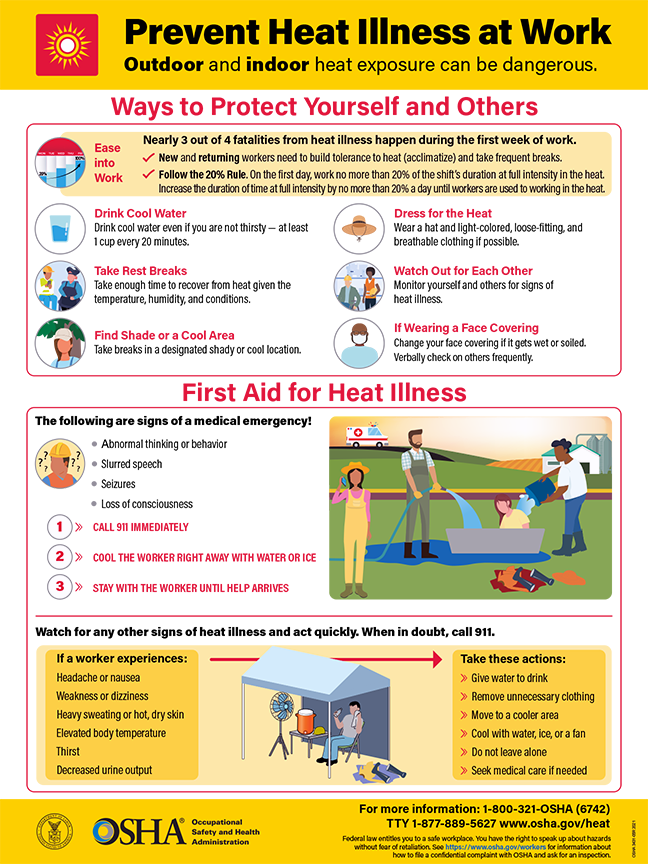
Get the latest information on OSHA's proposed rule to protect workers from both outdoor and indoor heat hazards.

Labor Rights Week is August 26-30. All workers, regardless of immigration status, have basic rights to safe workplaces, fair wages, and protection from retaliation for speaking up about concerns on the job.
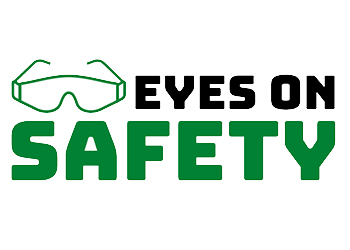
Sharpen your skills to detect hazards by taking one of OSHA's safety challenges. Develop a plan to address hazards you uncover.
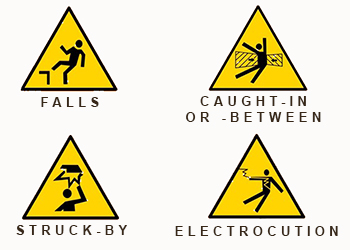
Don't have a clue where to look for workplace hazards? OSHA's Safety and Health Topics pages describe common hazards and solutions.
OSHA is happy to announce that an unofficial version of the Heat Injury and Illness Prevention in Outdoor and Indoor Work Settings proposed rule is now available for viewing – Regulatory Text, Background, Health Effects, Risk Assessment, Explanation of Proposed Requirements, Preliminary Economic Analysis, Technological Feasibility, Additional Requirements and References of the Preamble. (https://www.osha.gov/heat-exposure/rulemaking)
An official version will soon be published in the Federal Register. We encourage you to submit comments once the official version is in the Federal Register.
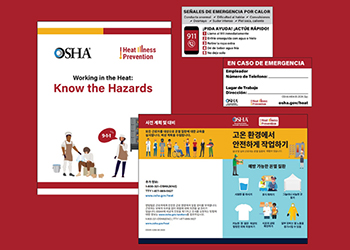
Here is a resource for fact sheets, wallet cards, posters and brochures in many languages to help you identify, prevent and respond to heat hazards in the workplace.

Heat-related illness can be prevented with water, rest and shade. New and returning workers should be given a gradually increasing workload to allow their bodies time to adjust to hot conditions.


Conduct a job hazard analysis to identify workplace hazards before they cause an injury or illness.
 |
Effective leadership of workplace health and safety programs can bring a program beyond the baseline of regulatory compliance into a dynamic system that engages the workforce and demonstrates leadership in your health and safety programs. This program will focus on leadership skills and advanced safety management strategies to improve the performance of health and safety programs.

OSHA announced its final rule that will update the current Hazard Communication Standard to better protect workers. The updated standard improves the information on labels and safety data sheets, allowing workers and first responders to react more quickly in an emergency. The updates take effect on July 19.
As we near the end of another school year, many students and young adults will be seeking summer employment . Unfortunately many are not aware of their rights in America's workplaces. OSHA has partnered with other government agencies and associations on a national campaign to inform and educate young workers and employers. Join the conversation as OSHA New York Region, Wage and Hour Division and Equal Employment Opportunity Commission representatives discuss young worker rights and employer responsibilities in the workplace. We will discuss a tragic incident involving the death of a teen worker falling 140 feet from a cell tower. Compliance assistance specialists will guide attendees through various young worker resources and provide additional information about important safety and health topics.
#KeepTeenWorkersSafe
Registration link : OSHA New York Region – Young Worker Webinar
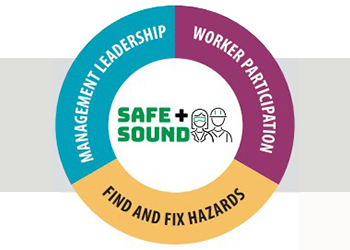
Safe + Sound Week is August 12-18. Get ready by taking the Safety and Health Programs Quiz and visit our website for resources, activities and graphics.
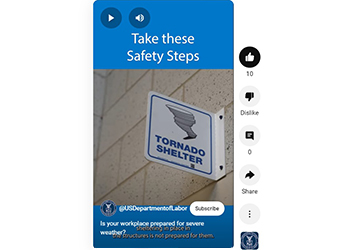
Watch and share OSHA's new video short on steps employers should take to keep workers safe from hurricanes, tornadoes and other extreme weather events before they occur.

The OSHA homepage allows the public to request the translation of OSHA vital documents in Chinese Simplified, Chinese Traditional, Haitian Creole, Korean, Spanish, Tagalog and Vietnamese.

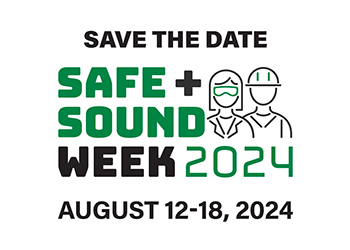
Join businesses across the nation during Safe + Sound Week, August 12-18, in recommitting to safety and health in the workplace. Request a proclamation from your local or state government to officially recognize this event.

The National Safety Council designates June as National Safety Month, to bring extra attention to safety issues faced in and outside the workplace. Sign up to receive free safety resources.

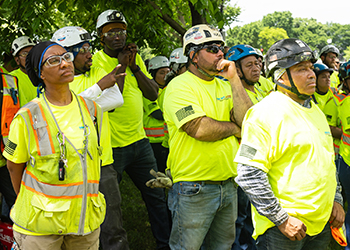
Hundreds of workers listened to Assistant Secretary for OSHA Doug Parker address fall protection at a May 8 Safety Stand-Down event in Washington, D.C., during Construction Safety Week.
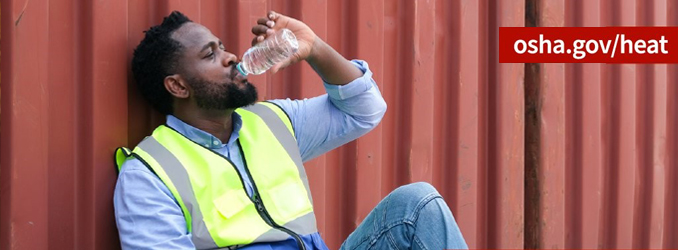
OSHA continues moving forward towards a proposed standard to protect workers from outdoor and indoor heat hazards, following the unanimous recommendation of its construction advisory committee.
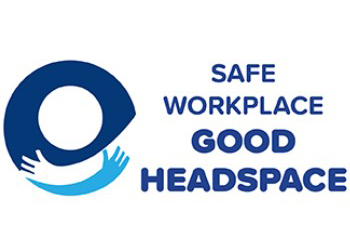
May is Mental Health Awareness Month. Learn how to cope with work-related stress and reduce the stigma of mental health.
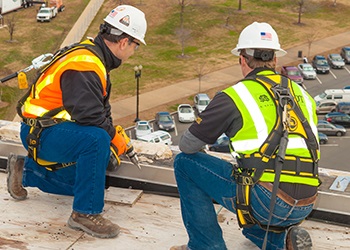
Next week is the annual National Safety Stand-Down to Prevent Falls in Construction. Visit our Stand-Down webpage to find or register an event.

Workers who lost their lives on the job were honored at Workers Memorial Day events nationwide. Families gathered to remember their loved ones, including at the Department of Labor in Washington, D.C. for a series of events. In case you missed it, view the ceremony and wreath-laying.

OSHA and the Wage and Hour Division are participating in a May 2 online presentation that will address the recent surge in child labor violations and what can be done to stop it.
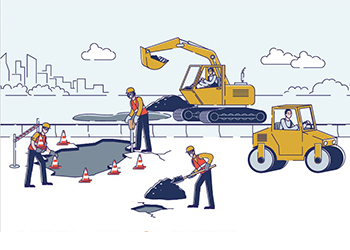
Register your stand-down event and find resources on how to prevent the leading cause of nonfatal injuries among construction workers.
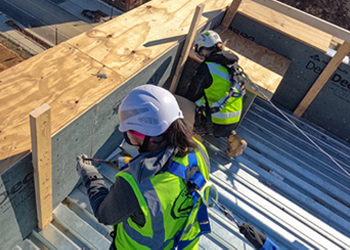
Help us to eliminate fatal falls by joining workers and employers across the country May 6-10 in the National Safety Stand-Down to Prevent Falls in Construction.
The top safe driving leaders recently discussed the need for worker training, defensive driving, the use of technologies to dissuade bad habits and employer policies banning the use of portable devices while driving. Watch the conversation.

Every year, on April 28, OSHA commemorates Workers Memorial Day, by remembering and honoring all workers who lost their lives on the job.
This year, OSHA is hosting multiple events leading up to Workers Memorial Day. Join us online or in person April 22-25 as we come together not only to honor those who have been lost or injured in the job, but to educate everyone about the importance of workplace safety to ultimately prevent future tragedy
The Occupational Safety Health Administration (OSHA) has published a new OSHA Hazard Alert on Severe Injuries in the Food Processing Industry. This new Hazard Alert is for employers, contractors, staffing agencies, and employees in the food processing industry, including cleaning and maintenance shifts, to increase awareness and help ensure the industry is taking action to reduce the alarming number of serious preventable injuries.

OSHA Chief of Staff Emily Hargrove reflects on the women pioneers throughout our nation's history who have championed workplace safety, fair wages, and organized labor to uplift and improve conditions for all workers.

Whether you run a small business or a large corporation, safety should be a priority in your workplace. No job should ever cost someone their life or their livelihood.